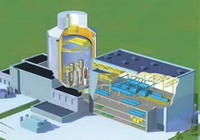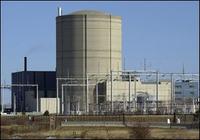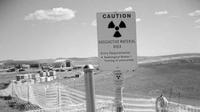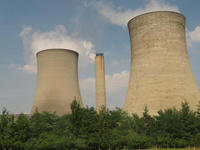-
The north of England can become the world’s nuclear base
Despite the repercussions from Fukushima, the nuclear new-construction renaissance continues in countries such as China, India, and the United Kingdom with sixty reactors under construction, 155 planned, and a further 338 proposed’ a new study suggests the that the north of England can become a hub for nuclear power-related activities
-
-
Small, modular reactors to figure in U.S. energy future
A newly released study concludes that small modular reactors (SMR) may hold the key to the future of U.S. nuclear power generation; an SMR would have a generating capacity of 600 megawatts or less, would be factory-built as modular components, and then shipped to their desired location for assembly
-
-
U.K. approves new reactor designs

U.K. regulators have given interim approval to two new nuclear reactor designs — the EDF and Areva’s UK EPRTM and Westinghouse’s AP1000; the regulators say that there are still some issues to be addressed, and that neither reactor can be built in the United Kingdom until these issues are resolved
-
-
Decontaminating radiation-laced water at Fukushima Daiichi
Thanks to special radiation devices, made by UOP LLC, a Honeywell company, cleanup crews in Japan have been able to treat five million gallons of water contaminated by radiation at the Fukushima Daiichi nuclear power plant
-
-
Hairline cracks discovered in Ohio nuclear plant

The discovery of several hairline cracks at a nuclear power plant in Ohio has watchdog groups questioning its structural integrity; on Monday a team of inspectors found several hairline cracks including one thirty-feet long at the Davis-Besse nuclear power plant, located outside of Toledo
-
-
Eight months later, Fukushima reactor could still be active
Troubles continue at the beleaguered Fukushima Daichii nuclear power plant in Japan with officials detecting radioactive xenon gas, a byproduct of nuclear fission, from reactor two nearly eight months after the dangerous meltdowns
-
-
Nuclear power shortages forces Japan to reduce consumption
As winter approaches, residents of Japan are being asked to cut power consumption by 10 percent as many of the country’s nuclear reactors have remained offline since the disaster at the Fukushima Daiichi atomic energy plant
-
-
New technology for safe storage of radioactive waste
Researchers have developed new technology capable of removing radioactive material from contaminated water and aiding clean-up efforts following nuclear disasters
-
-
Leeds sludge experts target nuclear waste
Researchers from the University of Leeds have teamed up with Sellafield Ltd. to clean up radioactive sludge produced by the U.K. nuclear industry; the newly formed Sludge Center of Expertise will play a key role in describing the behavior of the sludge wastes that have arisen after years of operation at Sellafield and other nuclear sites across the United Kingdom
-
-
Decontaminating Japan to cost at least $13 billion
Last week Japanese Prime Minister Yoshihiko Noda announced the government will spend at least 1 trillion yen, or $13 billion, to decontaminate areas affected by nuclear radiation from the Fukushima Daiichi atomic power plant
-
-
Highly concentrated radiation found in Tokyo
A recent study indicates that radiation from the Fukushima Daiichi nuclear power plant, which suffered a meltdown following the 11 March earthquake and tsunami in Japan, has spread further and was more concentrated than previously thought
-
-
Cold War nuclear legacy challenges science, society

Fifty years of U.S. nuclear weapons production, and government-sponsored nuclear energy research and production, generated contaminated soil and groundwater covering two million acres in thirty-five states; for most of that period, the U.S. government did not have environmental structures, technologies, or infrastructure to deal with the problem
-
-
U.K. nuclear plants are safe: report

The United Kingdom has finalized a review of the implications of the Fukushima disaster for the U.K. nuclear power industry; Dr. Mike Weightman, the author of the review, said that the “U.K. nuclear facilities have no fundamental safety weaknesses”
-
-
MIT to help develop a nuclear reactor concept
MIT has been awarded $7.5 million to help develop a new nuclear reactor concept — the high-temperature salt-cooled reactor (also called a Fluoride-salt High-Temperature Reactor, or FHR); the FHR combines high-temperature graphite-matrix coated particle fuel developed for high-temperature gas-cooled reactors (fuel failure temperature > 1600 degrees C), liquid salt developed for the molten salt reactors (boiling point > 1400 degrees C), and safety systems originate from sodium fast reactors
-
-
French nuke industry struggles to boost public image
In an effort to curry favor with the public, for the first time France has opened the doors of its nuclear power plants for the country’s annual “heritage” event; public opinion polls indicate the French public have turned increasingly against nuclear power following the accident at Japan’s Fukushima Daiichi nuclear power plant
-
- All
- Regional
- Water
- Biometrics
- Borders/Immig
- Business
- Cybersecurity
- Detection
- Disasters
- Government
- Infrastructure
- International
- Public health
- Public Safety
- Communication interoperabillity
- Emergency services
- Emergency medical services
- Fire
- First response
- IEDs
- Law Enforcement
- Law Enforcement Technology
- Military technology
- Nonlethal weapons
- Nuclear weapons
- Personal protection equipment
- Police
- Notification /alert systems
- Situational awareness
- Weapons systems
- Sci-Tech
- Sector Reports
- Surveillance
- Transportation
Advertising & Marketing: advertise@newswirepubs.com
Editorial: editor@newswirepubs.com
General: info@newswirepubs.com
2010-2011 © News Wire Publications, LLC News Wire Publications, LLC
220 Old Country Road | Suite 200 | Mineola | New York | 11501
Permissions and Policies
Editorial: editor@newswirepubs.com
General: info@newswirepubs.com
2010-2011 © News Wire Publications, LLC News Wire Publications, LLC
220 Old Country Road | Suite 200 | Mineola | New York | 11501
Permissions and Policies
